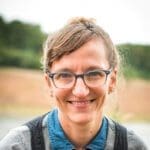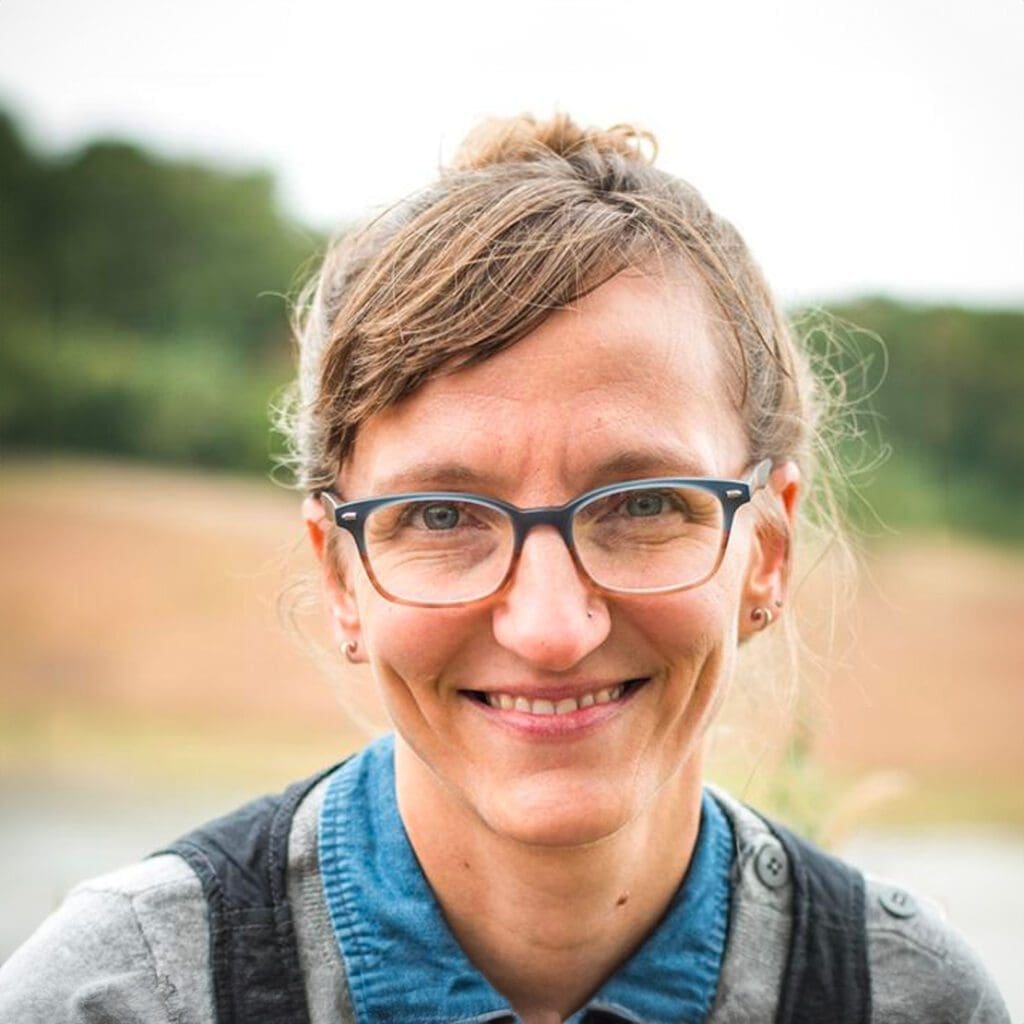Inspired by the interviews in the Paris Review and Bomb magazine, “The Questions” in Sports Illustrated, and the regular interviews on the blogs of Tom Peters and Guy Kawasaki, Comment has asked a diverse group of mentors for their stories.
Comment: How would you explain what you do to an interested nine-year-old child?
KVGR: I do a lot of different kinds of work, some things that pay and some that don’t, but I believe all of my jobs are important. I work with others to run a shop called World Fare that helps people in poor communities around the world by selling things they make and grow, like baskets and jewelry and coffee. I work with students at Calvin College on watching movies and listening to music with God in mind. And I publish an online magazine every other week as part of what I do for an organization called *culture is not optional. What ties everything together is that I’m always looking for ways to show my faith in a God of justice and love in actions, not just in words. And I like to try to inspire others to do the same, by going to church, but also in everything they do every day of the week.
Comment: What first drew you to this work?
KVGR: I would say that one of the earliest formative experiences for me was noticing that there was something different about how some folks practiced faith in their daily lives. I started spending time with the families of a couple of my high school teachers in the home that the two families shared. Two sisters and their husbands and families lived in a house in an ethnically diverse neighborhood. Sitting around their huge kitchen table for dinner and coffee and conversation forced me to confront the significance of what I felt in that place. From where was their joy coming? And how was it that they experienced such delight while still being aware of the world’s sorrow? And why in the world wasn’t everyone living this way? As I put together the pieces in answer to the whys and hows, I couldn’t possibly keep to myself what I had discovered in their humble community. I wanted—I still want—everyone to experience that quality of life, marked by unconditional love, bold confrontation of brokenness, and lived awareness of the body of Christ as both one and many.
Comment: As a novice, what were your most valuable learning experiences?
KVGR: Going broke was a valuable learning experience. It taught me that while many possibilities hinge on money, there’s always a way to do important work out of other kinds of reserves. It taught me to be creative, instead of waiting for a miraculous donation to appear. And being financially unstable has taught me to trust God’s provision through the support of people around me, rather than my will to ‘make things happen’. I also value being given more credit than I deserved and being asked to do more than I felt I was ready to do by people I respect, because it has shown me the ways in which I needed to grow, as well as my strengths and limitations. I gained a sense that growth is an ongoing, if sometimes painfully slow, process.
Comment: What is the best advice you’ve ever been given?
KVGR: I remember receiving this advice from another sojourner in the non-profit, faith and culture world, but I’m quite sure I’ve received some form of it from several people: “there are many good things to be done in the world, but it’s not my responsibility to do all of them.” I have to keep Archbishop Oscar Romero’s poem “A Future Not Our Own” in front of me as a reminder. He characterizes the work of the faithful as planting seeds or laying foundations—the beginnings of efforts that will probably never be fully realized in our lifetimes:
We cannot do everything, and there is a sense of liberation in realizing that. This enables us to do something, and to do it well. It may be incomplete but it is a beginning, a step along the way, an opportunity for the Lord’s grace to enter and do the rest.
Comment: From what sources do you draw inspiration for your work?
KVGR: I draw inspiration primarily from people’s stories, from hearing about their dreams and nightmares, and their positive and negative experiences of community. I also find inspiration in all sorts of books—theology, personal narratives, fiction—and periodicals. And in the times I’m able to maintain the discipline of reading and processing, I am deeply inspired by the organization of the biblical texts in the revised common lectionary. And I suppose tying all of these sources of inspiration together is the conversation I’m able to enjoy with my husband during the many hours we spend in the car each year, travelling around the country for conferences, visits and events. It’s during these times that we’re able to dream and distill and renew one another’s passion for our work.
Comment: What rituals and habits structure your workday?
KVGR: For better or worse, checking my e-mail is a ritual that marks almost every day. It’s my primary form of communication with people around the country and around the world who are collaborating both on specific projects and on the vast amount of Kingdom work that’s being done in the world. These messages at their best serve as a source of encouragement and challenge. Other significant rituals that are not necessarily tied to a particular time of day or even day of the week, but that I nonetheless find important: playing great music as a soundtrack to my work; playing no music at all as a means of listening and focusing; opening the windows to let the breeze grace my workspace; watering my vegetable plants or doing something that connects me to the land around me; engaging with students and friends about transforming cynicism into active hope; and closing the work day with fresh, local foods prepared with a glass of wine and as much leisure as possible.
Comment: What are your favorite tools?
KVGR: I’d probably have to make a distinction between my favourite and most useful tools. Given my love-hate relationship with advanced technology, very useful, indispensable tools include my MacBook, e-mail, the Internet and a fuel-efficient, mostly dependable Jetta TDI. Tools that are both favourite and useful: Moleskine notebooks, my bicycle, and any comfortable space equipped for sitting and talking.
Comment: Tell us about a project that delighted you.
KVGR: : I’m grateful to be a part of many delightful projects, but I would say one of the highlights worth mentioning is the Practicing Resurrection conference we organized last year as a partnership between *culture is not optional and Russet House Farm. It was breathtaking and humbling not only to see how many people were willing to travel to rural Ontario for a gathering, but how the event took on an inspirational quality that was beyond what any of us as individuals could have planned or imagined. Attendees from the ages of one to eighty-something listened and networked and camped and shared meals and played music and worshipped—all around a shared commitment to ‘practice resurrection’ every day in every aspect of life.
Comment: How do you plan your work?
KVGR: Not very well, which has in its own way come to be a strength. A friend and fellow founder of *culture is not optional characterized our working style as jazz—always attentive to improvisation and surprises, ready both to move and to simply keep a steady beat. Putting out a bi-weekly magazine composed of content by volunteer contributors, however, requires some structure. I plan issue topics three months at a time and maintain a writer’s e-mail list to which I send weekly updates about topics and deadlines. I also try to inspire potential contributors with related questions for each topic to get them thinking about how a particular idea manifests itself in their lives. And we do try as an organization to re-focus periodically on our priorities, to which we owe an immense debt of gratitude to those who surround *cino in both formal and informal capacities. We currently realize a need for a more consistent, active board of directors.
Comment: How does your work connect to other aspects of your life?
KVGR: My work is my life. Sometimes this reality can emerge in a way that needs to be checked—I have to be careful not to feel an obligation to ‘work’ every waking hour of my day. Giving up working after 7:00 p.m. for Lent a couple of years ago was one of the best things my husband and I ever did for self-discovery about our work and Sabbath habits. But in a sense, work as my life is the nature of the work I do. My day-to-day life, from the extraordinary to the mundane, is a living experiment in the very kinds of practices I write about and promote through *culture is not optional, through fair trade, through working in a student activities office. “It all matters” is the basic message. And so it does.


